Teaming up with retail giants like MINISO, Haiding CEO Jiang Zuoliang reveals the winning advantages of overseas expansion
![]() 11/28 2024
11/28 2024
![]() 578
578
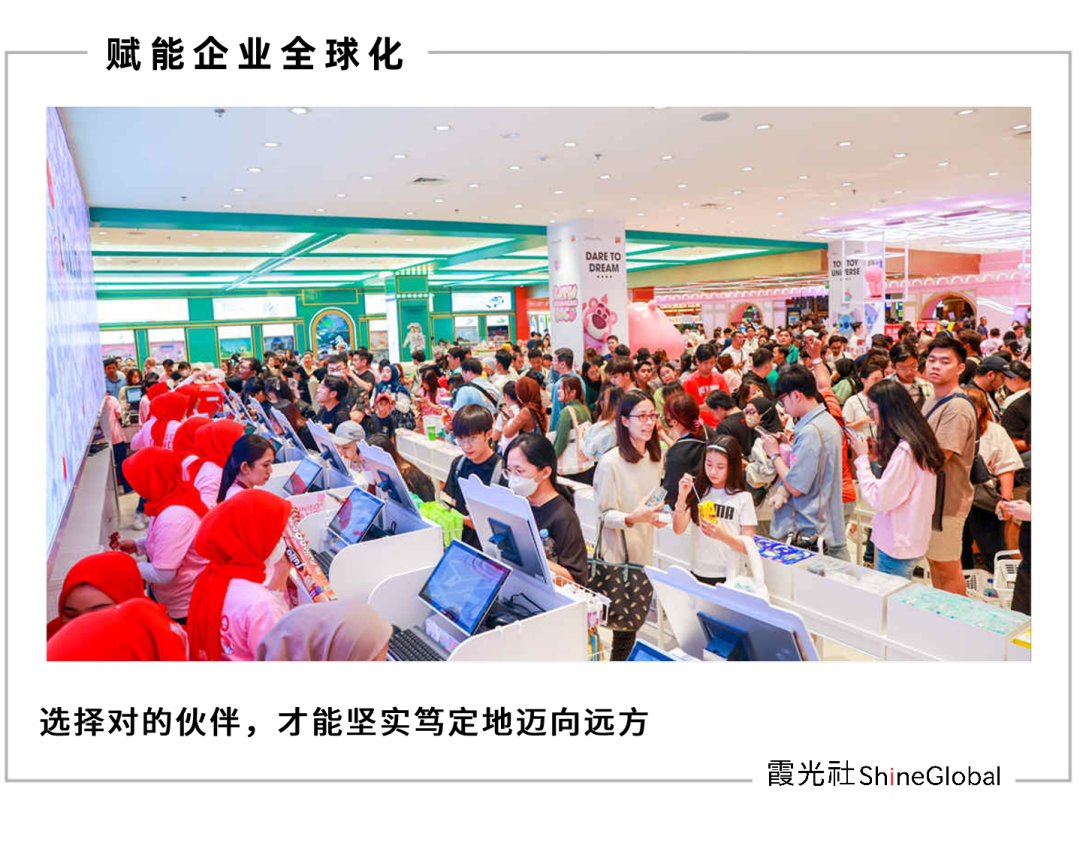
As the global economic landscape undergoes significant changes, Chinese enterprises' "going out" strategy has become inevitable. From traditional European and American markets to Southeast Asia, and emerging markets in the Middle East, Africa, and Latin America, Chinese enterprises are implementing diversified strategic layouts and thriving globally.
Among them, Chinese new retail enterprises represented by Pop Mart and MINISO are using leading business models and rich SKUs to open stores worldwide, creating a trend. As of the first half of this year, Pop Mart's overseas revenue increased by 259.6% year-on-year to 1.35 billion yuan, accounting for 30% of total revenue, up from 13% in the same period last year. MINISO has a total of 6,868 stores worldwide, with 2,753 overseas stores, accounting for nearly 40%, and overseas market revenue reached 2.732 billion yuan, a year-on-year increase of 42.6%.
However, the overseas business environment is complex and varies from region to region. When Chinese retail enterprises go abroad, they will inevitably encounter many localization challenges such as local consumption habits and business inertia. Facing the uncertainties of overseas markets, retail enterprises urgently need the support of business intelligence systems to complete the reshaping of authentic and personalized links, including front-end demand collection, agile information analysis and feedback, supply chain collaboration efficiency, and efficient fulfillment systems, to reform a complete consumer loop encompassing warehousing, logistics, distribution, sales, and customer service.
The new consumer infrastructure driven by digitalization is bringing new certainty to retail enterprises going abroad.
Notably, leading retail enterprises such as MINISO and Pop Mart have unanimously chosen Haiding as their business intelligence partner when expanding overseas markets. Regarding this, Haiding CEO Jiang Zuoliang explained, "Initially, Haiding's international business originated from the need for Chinese clients' digital business to go abroad, gradually completing product internationalization adaptation, and then progressively serving the informatization and digitalization layouts of overseas local clients. To date, Haiding has served multiple globally-positioned retail enterprises or international supermarkets and hypermarkets, including MINISO, Pop Mart, Yuanchu Foods, Dubai WinSupermarket Group, DIVIMART in the Philippines, ATAW in the Philippines, and Lotus's in Thailand."
As Haiding accelerates its overseas expansion, we spoke with CEO Jiang Zuoliang about Haiding's overseas market development journey, its unique advantages in empowering the globalization of Chinese retail enterprises, and its plans for further cultivation in different regions.
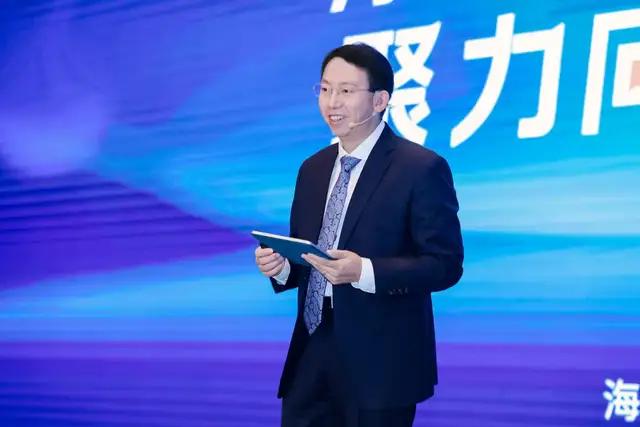
Haiding CEO Jiang Zuoliang

Today, strolling through Central Park, a core business district in Jakarta, Indonesia, one will find a constant stream of people in front of MINISO stores. On August 31, MINISO, which already has over 300 stores in Indonesia, opened its largest store in the world at Central Park, with a total area of about 3,000 square meters, featuring eight product category zones and special IP zones. Sales on the opening day exceeded 1.18 million yuan, setting a new record for MINISO's global daily sales.
Against the backdrop of the global economic downturn and consumption downgrade, Chinese retail enterprises represented by MINISO are driving global store openings and thriving through unique brand positioning, cost-effective products, first-class stores, global digital layouts, and unique business cooperation models.

MINISO's largest store in the world, located in Indonesia
Brands, products, and stores are the easiest to imitate, but the core business model is a genuine skill that competitors cannot learn in a short period. Many imitators are fleeting because they only learn the superficial aspects while ignoring the fundamentals.
The story dates back to 2009. At that time, Ye Guofu, the founder of MINISO, led a team to inspect Dongguan and noticed a convenience store called "Meiyijia." This convenience store brand expanded rapidly in South China, surpassing retail giants like 7-Eleven and FamilyMart in store count within a short period. The growth in store numbers meant a synchronous increase in purchase orders and logistics scale. What kind of system could support such large-scale business growth? After investigation, Ye Guofu met Meiyijia's information technology partner – Haiding.
At that time, Haiding had been deeply involved in the information technology field for over a decade, having a profound understanding of the various pain points encountered by Chinese retail enterprises during rapid expansion. It was adept at customizing business information management solutions tailored to the unique business models and long-term development strategies of enterprises, capable of supporting their long-term and stable development. After establishing cooperation with MINISO, Haiding meticulously assembled a professional project team that, after nearly three years of unremitting efforts, created a powerful information system for MINISO, supporting its full-process information management and becoming one of the keys to MINISO's takeoff.
In 2015, MINISO embarked on its journey of global expansion. As of June 30 this year, MINISO has entered 111 countries and regions worldwide, with overseas stores spanning Asia, North America, Latin America, Europe, and other parts of the world. MINISO can be seen in global landmark attractions such as New York's Times Square and the Champs-Élysées in France.
Not only did Haiding help MINISO successfully step out of the country and enter the international market, but it also accumulated rich international operation experience in the process, attracting more global partners and further expanding its global network. As CEO Jiang Zuoliang said, "When we first ventured into overseas markets, it was actually our clients who took us there. This year, we registered and established Haiding Hong Kong, a milestone event in our overseas layout. Next, we may establish a local team in Indonesia, the largest market in Southeast Asia."
The year 2023 is also known as the "first year" of Chinese enterprises going abroad, which does not mean the beginning but rather an explosion. Amid the surging wave of overseas expansion in 2023, Haiding also accelerated its journey abroad. In this year, Haiding launched a complete and mature international retail solution, fully initiating its globalization business.
"The main difficulty in overseas markets lies in acquiring customers," Jiang Zuoliang told Xiaguangshe. "Because unlike in China, where word-of-mouth can lead to a viral reputation, in overseas markets, we divide clients into three categories: the first are Chinese enterprises going global, where our system can support overseas multi-tax and multi-currency management needs, supported by mature and complete intelligent and digital business experience; the second are retail enterprises founded by overseas Chinese entrepreneurs, such as Dubai WinSupermarket Group and Lotus's in Thailand, who are closer to us in language and culture, facilitating smoother communication; and the third are purely localized overseas retail enterprises who are more concerned with software functionality."
In selecting overseas markets, Haiding adheres to two evaluation dimensions: economic growth rate and population growth rate. Jiang Zuoliang noted, "When both indicators show a steady growth trend, Haiding will prioritize them because incremental markets typically exhibit higher inclusivity and acceptance compared to stock markets." He further pointed out, "Currently, Haiding is closely monitoring the three major markets of Southeast Asia, the Middle East, and Africa. Southeast Asia shares geographical, cultural, and commercial ties with China, giving Chinese enterprises a communication advantage. Additionally, these three regions are booming emerging markets with ample opportunities worth exploring and tapping into."
In fact, whether in Southeast Asia or the Middle East and Africa, the consumer market is still in a stage of increasing supply. Many segmented consumer categories are primarily dominated by 1-2 international brands and 1-2 local family brands, with scarce brands, fewer SKUs, and relatively slow product replacement cycles. Currently, merchants do not need to provide revolutionary products because the supply in existing mature industries is still inadequate, and many common goods are difficult to purchase even in fifth- and sixth-tier cities. If brands can provide more SKUs, better design, relatively cheaper prices, and extensive and convenient channel layouts, consumers will be willing to pay.
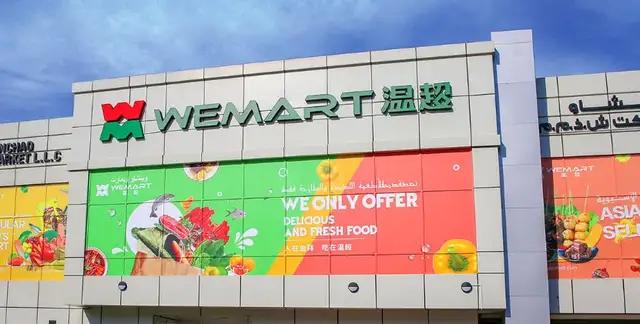
In 2020, Dubai WinSupermarket initiated cooperation with Haiding on information technology construction
In thriving emerging markets, Haiding is assisting Chinese retail enterprises in braving the storms and seeking gold overseas.

In overseas markets, facing the unfamiliar and exotic overseas business ecosystem, Chinese retail enterprises need to overcome many localization challenges tailored to local conditions. As a peer empowering enterprises to go abroad, Haiding continuously accumulates problem-solving experience and capabilities through exploration and experimentation in overseas markets. As Jiang Zuoliang said, "Our advantage lies in that when domestic retail enterprises want to expand overseas, our team often already has a thorough understanding and practical experience with the challenges and difficulties they may encounter locally, enabling us to more accurately meet client needs and help them better avoid risks."
Firstly, at the payment level, emerging markets such as Southeast Asia, the Middle East, and Africa have diverse and decentralized payment methods and are still in the cash-is-king stage.
Almost every segmented local payment scenario in Southeast Asia is developing its own electronic wallet, leading to these payment brands not being too large in size. Taking Indonesia's to C-end payment wallet market as an example, Indonesia is known for its "five major wallets," namely GoPay, DANA, OVO, ShopeePay, and LinkAja. In the Middle East, due to the insufficient local population and the prevalence of foreign workers in the Gulf Cooperation Council countries, the development of electronic wallets varies greatly among countries. This forces retail enterprises to cover multiple payment methods on the payment side.
To solve the localization challenge of payment methods for overseas retail enterprises, Jiang Zuoliang told Xiaguangshe, "In some overseas countries, we can provide aggregated payment services. In others, we need to individually connect with mainstream payment methods and coordinate payment interfaces with the other party. Regardless of the market, even for payment methods with low usage rates, as long as our merchants accept them, even if there are only one or two transactions, we must ensure connectivity."
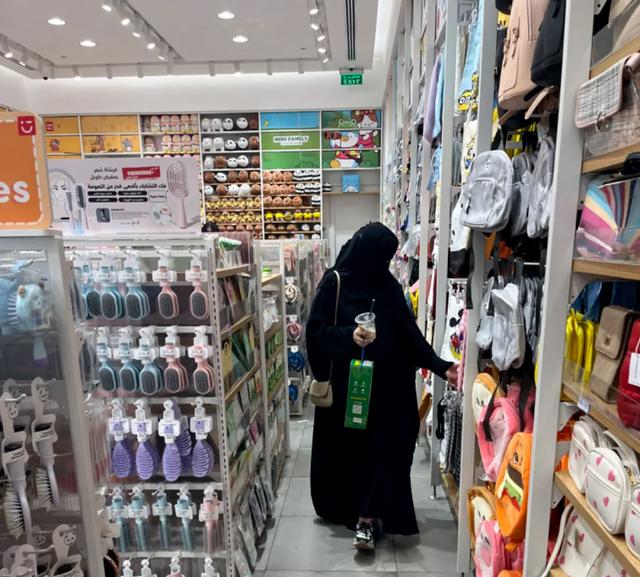
A Saudi woman shopping at MINISO in Riyadh Mall holding a cup of Chinese milk tea
Secondly, for retail enterprises to truly "go out" and "get in," achieving long-term stable development requires compliance with legal and cultural regulations.
Jiang Zuoliang gave an example, "Different countries have different tax systems. Some countries may have tax exemption policies for the elderly purchasing staple foods. Countries like the Philippines require BIR certificate authentication; otherwise, the POS system cannot be launched. In the Middle East, Muslim and non-Muslim products need to be physically separated, with non-Muslim products not appearing in Muslim daily operations and management."
Haiding's rich practical experience and locally adapted working methods can help enterprises better adapt to local markets.
Thirdly, in emerging markets such as Southeast Asia and the Middle East and North Africa, the development of online retail is in full swing, undoubtedly requiring digital retail systems to address new online retail scenarios and business needs.
According to the "Southeast Asia Digital Economy Report 2024" jointly released by Google, Temasek, and Bain on November 5, Southeast Asia's total gross merchandise volume (GMV) is expected to reach $263 billion this year, a year-on-year increase of 15%. Total revenue from the digital economy is expected to increase to $89 billion, with an annual growth rate of 14%, and profits are expected to rise to $11 billion, an increase of up to 24%.
Today, Southeast Asia's e-commerce ecosystem is becoming increasingly rich: there are shelf e-commerce represented by Shopee and Lazada, live e-commerce and social e-commerce represented by TikTok Shop, and private domain e-commerce similar to "WeChat Business." Local food delivery platforms also include Grab, foodpanda, gojek, Shopee food, and LINEMAN. MINISO is the brand with the most members on Shopee.
In the Middle East, the e-commerce market has formed a tripartite confrontation: global e-commerce giants represented by Amazon, local Middle Eastern e-commerce represented by Noon and Namshi, and Chinese cross-border e-commerce represented by SHEIN, Trendyol, AliExpress, and Temu, competing in this emerging e-commerce blue ocean.
The high ARPU and dense user base also make the Middle East food delivery market attractive and imaginative. According to Statista, the revenue of the food delivery market in the United Arab Emirates is expected to reach $1.12 billion in 2024, with a compound annual growth rate of 3.78% from 2024 to 2029. By 2029, the market size is expected to reach $1.35 billion.
Founded in 2006, WinSupermarket Group, headquartered in the International City area, a gathering place for Chinese in Dubai, is a large Chinese retail enterprise group integrating global procurement, farming, logistics, retail supermarkets, e-commerce, and wholesale. In 2020, Dubai WinSupermarket initiated cooperation with Haiding on information technology construction and simultaneously launched the Haiding H6 and Haiding WMS systems in March 2021, providing comprehensive digital and intelligent support for multi-format businesses including supermarkets, e-commerce, and wholesale, and offering a bilingual system for Chinese and foreign employees.
Haiding upgraded the WEMART e-commerce system for WinSupermarket Group, realizing data isolation between the e-commerce warehouse and the main warehouse and optimizing the e-commerce logistics management process, significantly improving e-commerce logistics fulfillment efficiency.
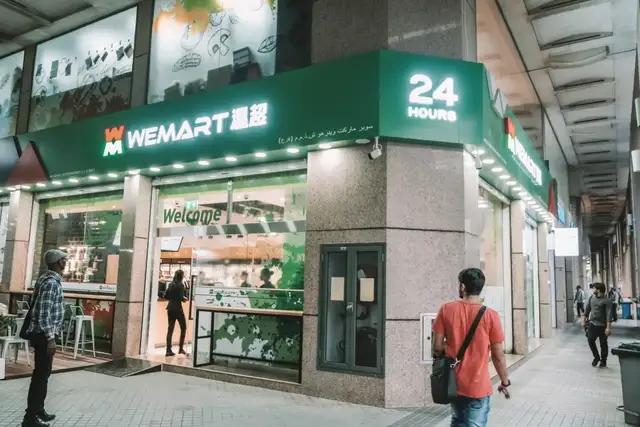

For Chinese enterprises, entering a new overseas market presents a common challenge of how to achieve a cold start and break the market deadlock. As a provider of business intelligence solutions with nearly three decades of mature experience, Haiding's accumulated unique advantages serve as the best leverage to leverage overseas merchants.
Firstly, aiming at different market environments and diverse customer needs, Haiding has independently developed and owns a number of commercial digital products with independent intellectual property rights, including ERP, POS, CRM, WMS systems, etc. These products can provide retail enterprises with comprehensive and flexible solutions to meet their needs at different development stages and business scenarios.
Secondly, Haiding adheres to open integration and win-win cooperation. By establishing good ecological partnerships with software and hardware companies in the industry, Haiding can work closely with partners to develop more practical comprehensive solutions tailored to customers' diverse needs on different projects.
Thirdly, Haiding's management consulting capabilities enable enterprises to face unfamiliar overseas markets with ease and purpose. "The implementation of our entire project is delivered through a consultative approach. In addition, we can also provide customers with related management consulting services independently, establishing projects through methods similar to digitally guided business, and working with customers to deeply apply digital concepts and methods in the business process," said Jiang Zuoliang.
When discussing Haiding's core competitiveness, Jiang Zuoliang explained that it is first reflected in Haiding's deep understanding of the retail business. "We have accompanied many companies from small enterprises to large-scale enterprises. When some companies first cooperated with us, their operating scale was only tens of millions, but later it may have reached tens of billions. We have walked through this entire process together. Therefore, these valuable experiences allow us to fully understand customers' businesses and their software system needs at different business scales."
Profound business understanding is the foundation, while rich project experience equips the Haiding team with solid practical capabilities. "Our entire team attaches great importance to accumulation, and management must also have experience in many projects. This ensures that an amateur will not lead a professional. This allows us to remain calm and come up with solutions to solve various problems when encountering them," said Jiang Zuoliang.
Today, Haiding can provide customers with full business process support from supplier collaboration to consumer-facing services. Customers can flexibly choose a specific link according to their own needs, such as ERP or WMS systems, for customized deployment. "However, our solution is complete, so we have a more macro and holistic perspective when thinking about problems, rather than just from a local perspective. This should be an important reason why we have earned a good reputation," said Jiang Zuoliang.


In Jiang Zuoliang's view, Haiding's goal has never been to reach a certain turnover or profit. Compared with achieving breakthroughs in profitability, Haiding is more willing to become the preferred solution provider for businesses. The word "preferred" is very crucial, which means that Haiding must continuously and keenly identify industry pain points and development trends in the rapidly changing business world, provide better solutions, and strive to make business more efficient.
"If there must be a goal for Haiding, then I hope we can provide our services and contribute our professional strength more extensively in different tracks in domestic and foreign markets, doing things solidly rather than just pursuing superficial and one-sided performance indicators," said Jiang Zuoliang.
In Haiding's eyes, there is no distinction between big and small customers, and the reputation of customers of all sizes is equally important. It is precisely this bit-by-bit accumulation that enables Haiding to take every step more solidly and firmly.
As American scholar Lawrence C. Smith stated in his book "The Great Human Migrations of 2050": "The world is in the early stages of economic transformation, and today's world is more closely connected than ever before. The globalization process is more extensive and complex than any regional union in human history."
Today, with the trend of Chinese enterprises' globalization in full swing, the overseas market will occupy an increasingly important position in Haiding's business landscape in the future. Facing the new wave of globalization and an uncertain world, choosing the right partner is essential for steadfastly moving forward.
As a peer and enabler in the globalization process of retail enterprises, Haiding will join hands with overseas enterprises with a firmer determination to go abroad, more proactive localization services, compliance management, product innovation, and ecological win-win cooperation, helping Chinese retail enterprises ride the waves and achieve stable and long-term development in the international market.







